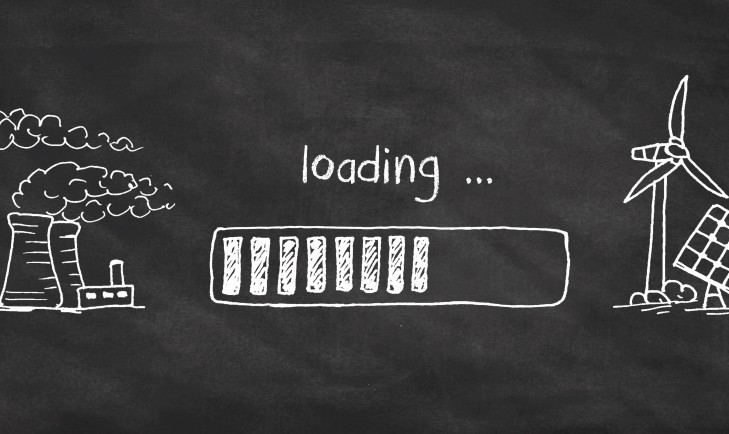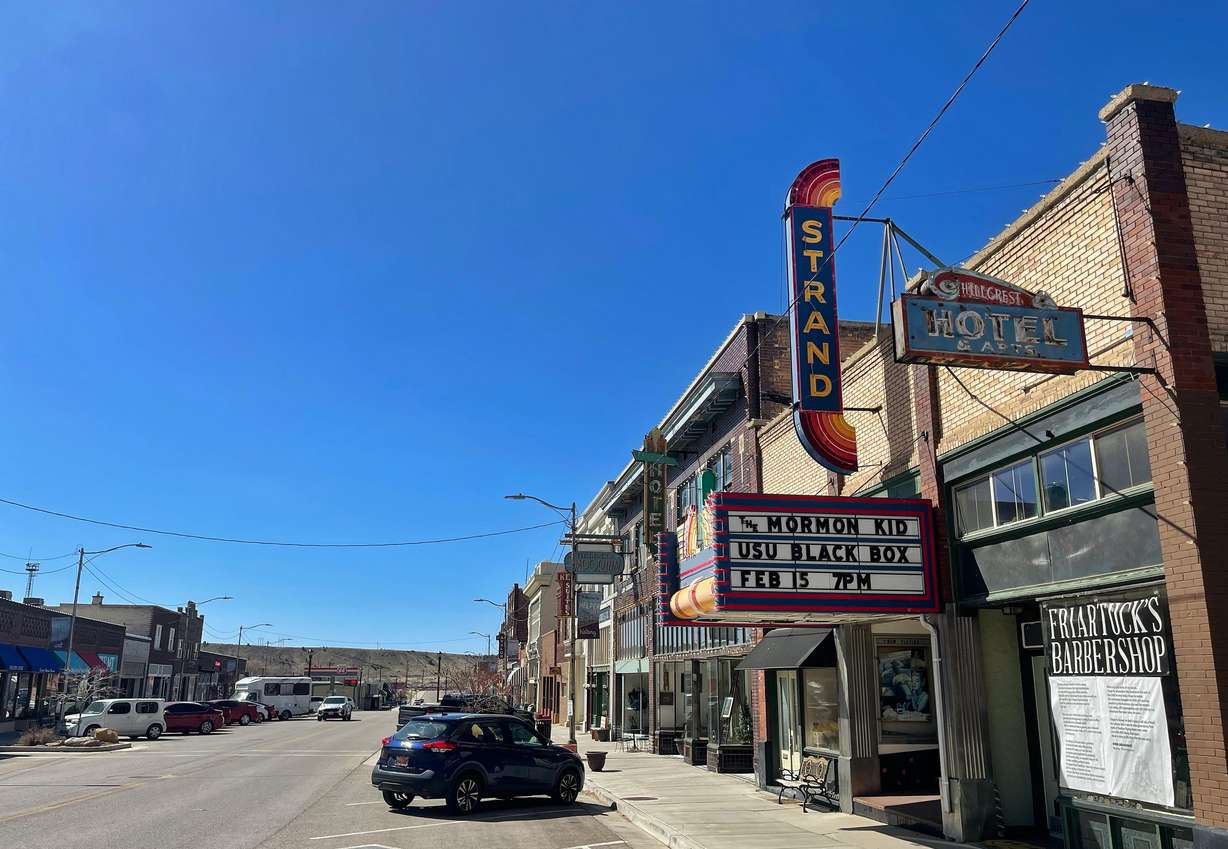04/18/24
Best of the West: Transitioning coal communities; green wastewater-treatment; a new state lab; extreme heat protection; and a historic Disney expansion

The Western Governors' Association keeps you updated on the latest news in the West. Here are the top stories for the week starting April 15, 2024. (Photos courtesy of Adobe Stock Images, Logan Stefanich, KSL.com, and Office of the Governor of North Dakota).
Sammy Roth, a climate columnist for the LA Times, wrote an interesting piece this week about what, if anything, big cities owe the rural communities and tribes that produced the vast majority of the nation’s power while living with the air and water pollution those sources of power generation emitted.
“Can we get climate change under control without putting [these communities] out of business? What’s their role in the clean energy transition?” he asked.
While Roth’s reporting was largely focused in Montana, states around the West are employing innovative strategies to help rural communities transition their economies in the wake of closing coal plants.
 Helper, Utah, a once important mining and railroad hub that had declined in recent years alongside the production of coal, successfully revitalized the town’s main street using art grants. Helper is now home to several festivals and events far beyond what one might expect from a community of its size.
Helper, Utah, a once important mining and railroad hub that had declined in recent years alongside the production of coal, successfully revitalized the town’s main street using art grants. Helper is now home to several festivals and events far beyond what one might expect from a community of its size.
Tune into WGA’s Out West podcast to learn about other programs that Utah has pursued to support rural economic development, like the San Rafael Energy Research Center, which works to diversify the state's energy portfolio and help employees in the coal industry transition their skills to new economic sectors.
In New Mexico, The Navajo Nation awarded ZenniHome a $50 million grant from its Community Housing and Infrastructure Department and another $24 million from the American Rescue Plan Act to expand the production of houses by building a second factory at the former Navajo Generating Station site – a retired coal-fired power plant.
The company’s 3-bedroom homes are priced at $200,000 and will include water, sewer, electricity, and basic appliances. That includes off-grid options to provide water, internet, sewer, and electricity for homes too far from utilities.
Similarly, The New Mexico Economic Development Department allocated $6 million to assist communities in diversifying their economies following the closure of the San Juan Generating Station.
The Northern New Mexico Indigenous Farmers Inc. plans to use the funding to replace the Hogback Water Pumping Station, with a solar-powered pumping station that has both microgrid and energy storage capabilities.
The $1 million grant provided to Farmington, which was a partial owner of the San Juan Generating Station will support a solar generation and battery storage project to replace some of the generation capacity lost when the power plant shuttered.
The rest of the funding will go towards the development of three solar-powered concrete facilities and a lavender farm.
A similar approach is being used to help Centralia, Washington. As part of a deal brokered by former Washington Governor Christine Gregoire, TransAlta set up a $55 million community transition fund in exchange for an extra 10 years to operate.
While the fund didn’t change the city overnight, it marked Centralia as being open to new ideas and opportunities and is now been cited as a model for how to successfully transition away from coal.
Today, several hydrogen companies are considering opening up shop in the area and a nuclear fusion startup is considering setting up next to the coal plant.
Green Wastewater-Treatment: In a first-of-its-kind study, researchers at Colorado State University demonstrated that a transition to green wastewater treatment that leverages the potential of carbon financing could save the U.S. a staggering $15.6 billion and just under 30 million metric tons of CO2-equivalent emissions over 40 years.
"It is a starting point to understand what routes are available to us now and how financing strategies can elevate water treatment from a somewhat local issue into something that is addressed globally through market incentives," said Braden Limb, the first author of the paper and a Ph.D. student in the Department of Systems Engineering.
.jpeg) New State Lab: This week, North Dakota Governor Doug Burgum and officials from the state Department of Health and Human Services and Department of Environmental Quality broke ground on a new $70 million State Laboratory on the Capitol grounds in Bismarck. The purpose of the State Laboratory is to assist labs across the state with safe handling, training, and testing for diseases. The laboratory will also test water quality, study mosquito and tick diseases, as well as investigate natural or man-made disasters.
New State Lab: This week, North Dakota Governor Doug Burgum and officials from the state Department of Health and Human Services and Department of Environmental Quality broke ground on a new $70 million State Laboratory on the Capitol grounds in Bismarck. The purpose of the State Laboratory is to assist labs across the state with safe handling, training, and testing for diseases. The laboratory will also test water quality, study mosquito and tick diseases, as well as investigate natural or man-made disasters.
Extreme Heat: Phoenix, Arizona, recently passed an ordinance that grants outdoor workers protection from extreme heat. The ordinance requires that workers have easy access to rest, potable water, and shade, as well as training to recognize signs of heat stress. Vehicles with enclosed cabs must also have access to air conditioning. Contractors who fail to meet the requirements risk losing business with the city and eligibility to work with Phoenix in the future.
Learn more about efforts to address extreme heat by registering for a livestream of the 2024 Western Prosperity Roundtable on April 23-24, during which a panel of experts from the U.S. Department of Health and Human Services (HHS), Industrial Commission of Arizona, Washington State Department of Health, City of Phoenix, and UCLA Luskin Center for Innovation will examine standards and programs to help communities confront this issue.
Disney Expansion: Anaheim, California, recently approved the biggest expansion of Disney’s Southern California theme parks in 30 years. Aiming to create more immersive experiences for guests, Disney will spend at least $1.9 billion over the next decade to transform its 490-acre campus. Disney will also be required to spend tens of millions of dollars on street improvements, affordable housing, and other infrastructure in the city.
“We look forward to cultivating more Disney magic and building opportunities for all as this investment drives billions of dollars in revenue for our state and local communities,” California Governor Gavin Newsom said in a statement.